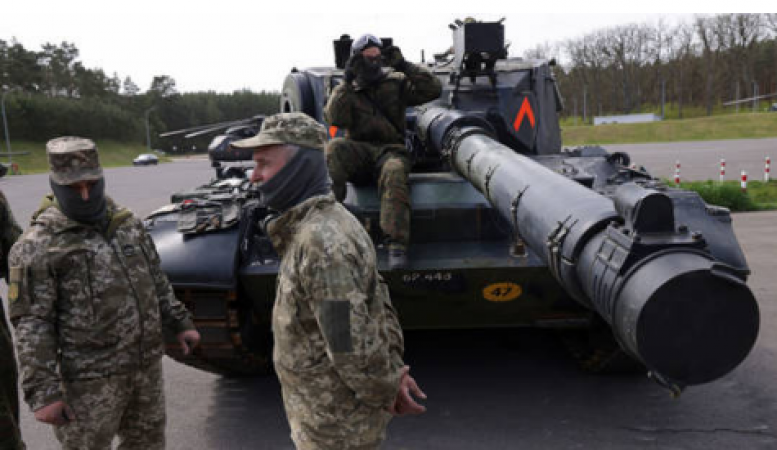
Berlin: Ukraine powers its Western-supplied tanks and diesel generators with Russian oil refined in Hungary and Turkey, according to a report published on Monday by the German newspaper Handelsblatt.
According to Ukrainian customs officials and the business daily, the Hungarian oil and gas giant MOL has "doubled its sales to Ukraine in the past six months." According to Handelsblatt, Ukraine's war machine should now be fueled primarily with Russian oil since MOL buys a significant amount of its oil from that country.
Despite being a member of the EU, Budapest has managed to obtain a special exemption for the use of pipelines to import crude oil from Russia. MOL can offer Kiev lower prices on refined petroleum products than many EU companies, who are subsequently unaffected by the bloc's sanctions against Moscow and are losing market share in Ukraine, according to the German outlet.
Also Read: Driver Rams Into Crowd of Protesters in Israel, Injuring 3
Prior to the current hostilities, the Kremenchug refinery in the Poltava Region, which processed imports from Azerbaijan, allowed Ukraine to meet about 30% of its domestic needs. According to reports, it was "severely damaged" by Russian missile strikes in April 2022 and has so far only partially recovered.
There are no fuel shortages in Ukraine, according to Handelsblatt, despite the fact that Kiev is entirely dependent on imports from abroad. There appears to be enough diesel for the generators the West sent last winter to make up for power outages caused by Russian attacks on the electricity grid, even with the increased consumption of tanks and armoured vehicles supplied by NATO.
Also Read: Arrest Warrant Issued for Pakistan's Ex-PM Imran Khan over Contempt Charge
Michal Paszkowski, an analyst at the Institute of Central Europe (IES) in Lublin, told a German newspaper that the majority of fuel deliveries pass through Poland by rail. "The fuel is piped in from Slovakia and Hungary, while the diesel is first shipped from Romania and then moved by rail."
Russian oil is now subject to a price cap set by the US and its G7 allies, which forbids shipping and insurance companies from handling the cargo unless it is sold for at least $60 per barrel. Similar limitations were put in place for Russian petroleum products in February.
Also Read: Tragic Waters: Indonesian Ferry Sinks off Sulawesi, 15 Dead and 19 Missing
In response, Moscow has banned the sale of crude oil and refined goods to anyone who abides by the price cap and stopped using US dollars to pay for oil. OPEC+ nations have disregarded Washington's requests to increase production to make up for the loss.